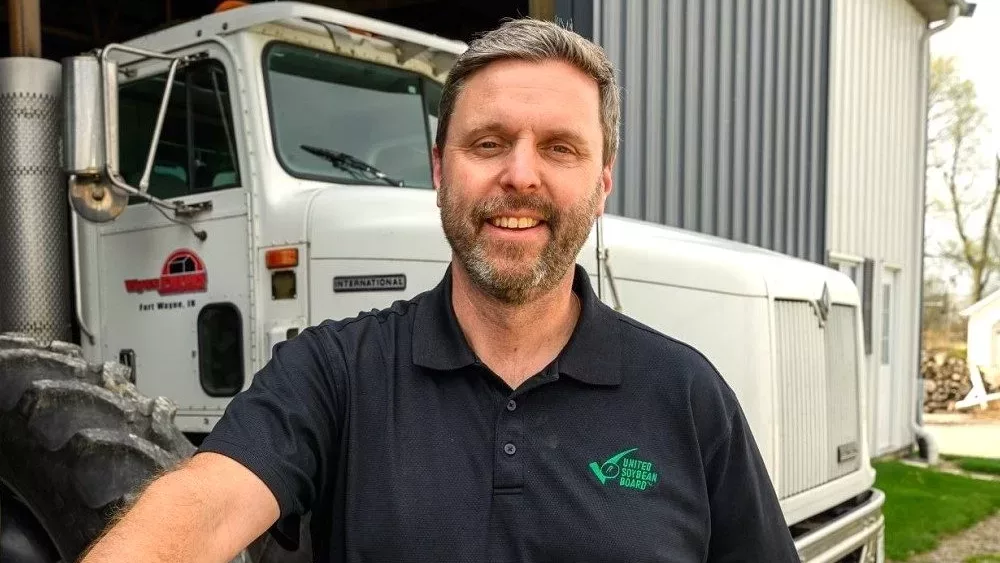
On this month’s edition of “Conversations with Dairy Checkoff,” we’re joined by Brianna Henton, Youth Wellness Manager for United Dairy Industry of Michigan.
MAT: Through its “Moolah for Schools” Program, UDIM is working with schools across the state to improve the lunchroom experience and provide additional nutrition. Can you tell me more about the efforts that you and your team are making there?
Brianna: The “Moolah for Schools” grant program at UDIM provides equipment, marketing materials and technical assistance from our staff to help support innovation in school meal programs across the state. The goal of the program is to ensure that the nutrition needs of our growing youth are met while they’re in school and they’re learning, and it helps us to create lifelong dairy consumers by making sure those healthy choices are more appealing to students on those school lunch lines.
School meals are not what they used to be, contrary to popular belief. UDIM created this grant program to support those enhancements to different menu items that feature nutrient-rich dairy and that are also supporting the innovation to the meals as a whole that are served to our students in school.
What Moolah for Schools grants are available and how can schools apply for it?
So there are a variety of options available for schools that would best fit the needs for their students and for their building, anything from blenders for smoothies to hot chocolate dispensing machines that serve during the cold months in Michigan. Schools can really choose that best option, and it’s all about meeting the students where they’re at, connecting with them with what they like and what is on trend, what they’re seeing elsewhere, and serving that on the school menu.
Healthy dairy-filled options, like lattes in high school, have become a really big hit. We’re seeing new faces in school cafeterias in the morning at breakfast that school service staff had never seen before, until they started serving these lattes. Romeo High School on the east side of the state are now averaging around 100 lattes a day, and each latte is served with a full eight-ounce serving of milk.
What are some other examples of how the “Moolah for Schools” programs have been implemented and how they performed?
This grant really rethinks how food is served to students. So I talked a little bit about the different menu options, but we’re also changing the way foods are served as a whole. We’re offering second chances to enjoy school breakfast, for example, by taking breakfast outside of the cafeteria at the beginning of the day to a second chance option in busy hallways and between first and second period.
For Muir Middle school, they’re serving nearly 200 breakfasts on the go from a grant that was awarded through the “Moolah for Schools” opportunity by putting an awarded breakfast cart right in the hallway with a rolling milk cooler so that kids can just come in and growing teens get the nutrition they need in between those classes when they maybe weren’t hungry in the morning. There’s so many heartwarming stories about how these drinks brought joy into the cafeteria between new menu items to replacing 30-year-old milk coolers that just weren’t able to keep milk cold anymore, all in the effort to make milk more enjoyable for students.
How do these programs benefit farmers both long and short term?
The “Moolah for Schools” grant gives farmers the opportunity to support their local schools and the future of America, our next growing youth and the adults that will soon-to-be. Farmers provide this high-quality safe, nutritious product for all to enjoy. We want to make sure that milk and dairy is enjoyed by students when they’re growing up. We want to make sure we’re building a solid foundation with these younger generations. As these kids grow and become future purchasers in grocery stores and in restaurants, we want to ensure milk and dairy is included with that purchase.
Where can schools and parents get more info about the Moolah programs?
Farmers and schools can visit our website to connect schools in their local area with the grant options that are available. We are supporting a need seen in school cafeterias through equipment, so that there are more delicious dairy options on the menu and then also marketing these options to their customers: students, parents and school staff. So we’re supporting meals and dairy served in school nutrition departments across the state, and farmers and schools can get in on the grants open right now.





